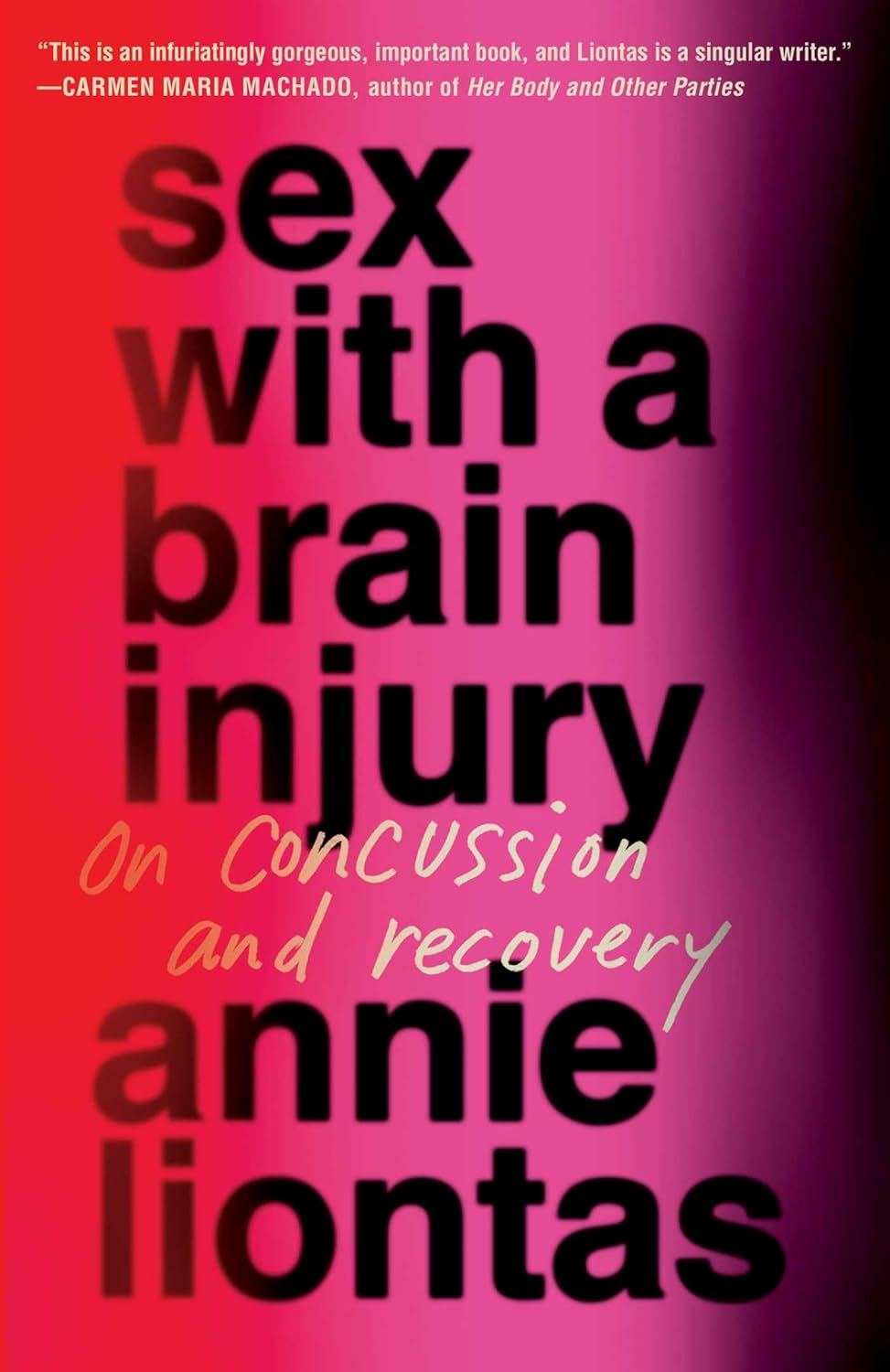Welcome to Read this Book, a newsletter where I recommend one book that needs to jump onto your TBR pile! This week, I’m recommending one of my favorite books of 2024 so far!
2024 is the tenth year of the Read Harder Challenge! Join us as we make our way through 24 tasks meant to expand our reading horizons and diversify our TBRs. To get book recommendations for each task, sign up for the Read Harder newsletter. We’ll also keep you informed about other cool reading challenges, readathons, and more across the bookish internet. If you become a paid subscriber, you get even more recommendations plus community features, where you can connect with a community of passionate, like-minded readers in a cozy and supportive corner of the internet. Sign up today!

Sex with a Brain Injury by Annie Liontas
Growing up, my brother and I both experienced chronic daily headaches and migraines, a combination of genetics and traumatic brain injury (TBI). I struggled to describe my experience with symptoms like memory loss, word confusion, and constant pain to my friends and youth group leaders. Eventually, I gave up and pretended I was fine. That was easier, wasn’t it?
When I started reading Liontas’ memoir, I had to stop everything I was doing. I just sat down and listened to Liontas describe her concussions — she suffered from three in one year — and how those injuries to her brain are still with her to this day. Her descriptions of migraines, confusion, and brain fog jump off the page with their intense detail. Her prose is lush, beautifully woven together across the page. She has to get off a train while traveling to go teach. She has to flag down a law enforcement officer because she realizes too late that she can’t make the short walk to a friend’s house. She keeps calling a colleague by the wrong name on a work call.
The title stems from a beautiful essay in the book where Liontas describes how sex with her wife became impossible. Something she used to crave now caused her pain. Her brain disrupted her joy as well as her close relationship with her wife. Much of this memoir centers around Liontas’ relationship with her wife. We are invited into their world with snippets of redacted conversation transcripts, and we, as readers, wonder if their relationship will make it until the end of the memoir.
I adore this book’s structure, how Lontas tells her story in fragments, moving from moment to moment. She stops, starts, corrects herself, mimicking how many people with TBIs think. She tells her story in a way that gives readers a little glimpse into how her brain works. In this way, she doesn’t cater to neurotypical minds. Instead, Liontas embraces the way her mind works now, inviting those of us with similar conditions to do the same.
That’s it for this week! You can find me over on my substack Winchester Ave, over on Instagram @kdwinchester, or on my podcast Read Appalachia. As always, feel free to drop me a line at kendra.d.winchester@gmail.com. For even MORE bookish content, you can find my articles over on Book Riot.
Happy reading, Friends!
~ Kendra